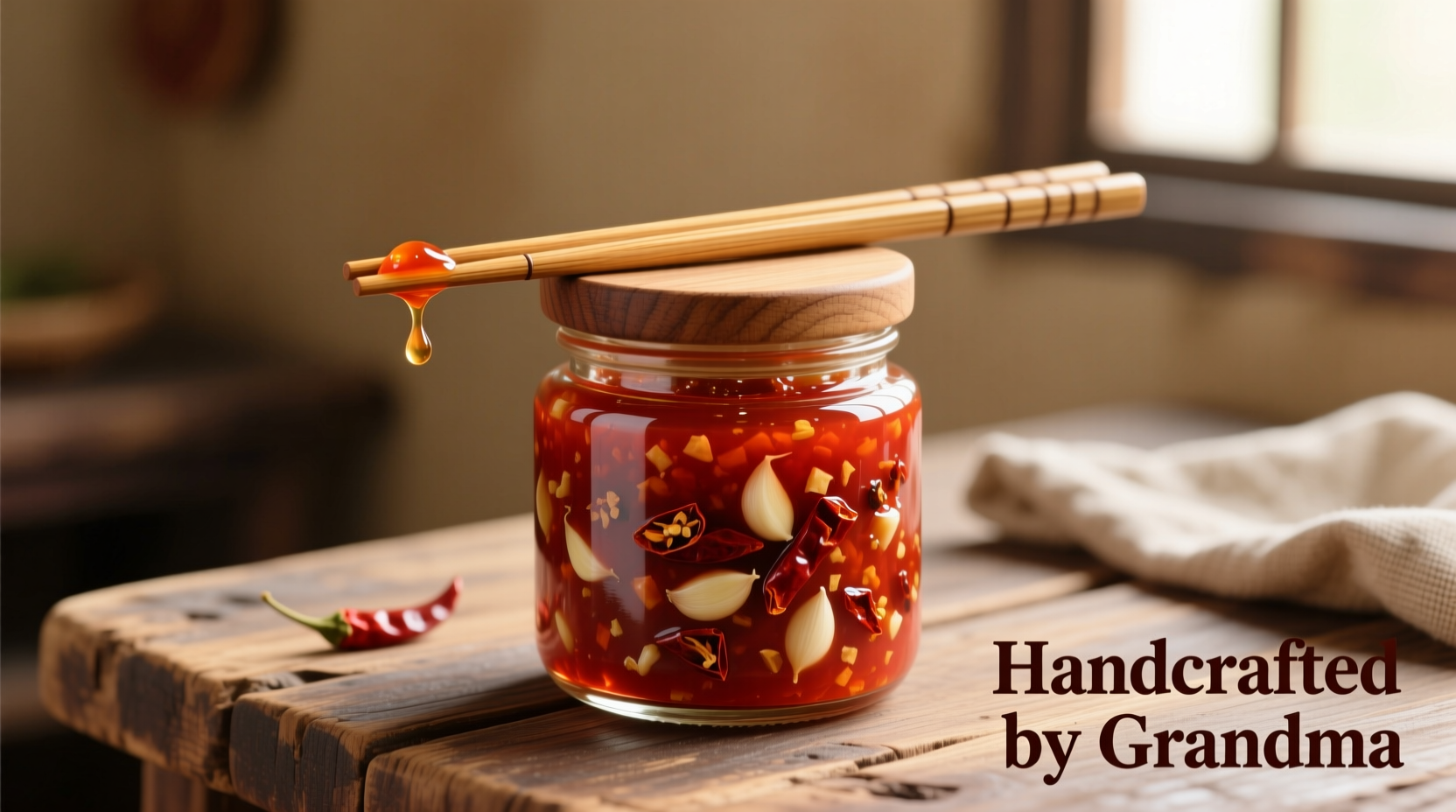Garlic chilli sauce combines fresh garlic, red chillies, vinegar, and salt to create a versatile condiment that enhances noodles, dumplings, and stir-fries. The authentic version uses 1:1 ratio of minced garlic to chillies with 20% vinegar for preservation and balanced heat. Properly made sauce lasts 3 months refrigerated and delivers complex umami notes beyond simple spiciness.
Why This Condiment Belongs in Your Kitchen
Garlic chilli sauce transforms ordinary meals with its dual-layered flavor profile. Unlike store-bought versions loaded with preservatives, homemade sauce offers brighter garlic notes and customizable heat levels. Food scientists at Cornell University's Department of Food Science confirm that fresh garlic compounds like allicin provide both antimicrobial properties and distinctive pungency that diminishes after 48 hours—making small-batch preparation essential for optimal flavor.
From Ancient Roots to Modern Pantry Staple
Garlic chilli sauce evolved through centuries of culinary exchange. Our timeline reveals key developments:
| Period | Development | Cultural Influence |
|---|---|---|
| 1500s | Chillies introduced to Asia via Spanish traders | Replaced black pepper in Chinese coastal regions |
| 1800s | Vinegar preservation techniques refined | Sichuan chefs developed shelf-stable versions |
| 1970s | Commercial production begins | Lao Gan Ma popularizes mass-market version |
| 2020s | Global fusion variations emerge | Adapted for Western palates with honey additions |
Essential Ingredients and Their Roles
Understanding each component's function ensures perfect balance:
- Fresh garlic (50% of base): Provides pungent backbone—roasting mellows sharpness
- Red chillies (50% of base): Choose Fresno for medium heat or bird's eye for intense spice
- Vinegar (20% of liquid): Preserves while adding brightness—rice vinegar preferred
- Salt (3% by weight): Enhances flavor and prevents spoilage
Step-by-Step Preparation Guide
Follow these professional techniques for restaurant-quality results:
- Peel and finely mince 1 cup garlic cloves (use ceramic knife to prevent oxidation)
- Remove chilli seeds for milder sauce—retain for maximum heat
- Mix ingredients in glass bowl using wooden spoon (metal affects flavor)
- Cover surface with plastic wrap touching the mixture to prevent browning
- Refrigerate 48 hours before use to allow flavors to meld

Strategic Usage Guide
Maximize flavor impact by understanding context boundaries:
- Ideal applications: Toss with cold noodles, mix into dumpling dipping sauce, swirl into congee
- Limited effectiveness: Avoid adding to delicate seafood or creamy sauces
- Heat management: Add during final cooking stage to preserve volatile compounds
- Flavor pairing: Complements soy-based dishes but clashes with heavy dairy
Regional Variations Comparison
Different culinary traditions create distinct profiles:
| Style | Garlic:Chilli Ratio | Unique Ingredients | Best Applications |
|---|---|---|---|
| Sichuan | 1:1 | Sichuan peppercorns | Mapo tofu, dan dan noodles |
| Hunan | 1:1.5 | Fermented black beans | Steamed fish, braised pork |
| Thai | 1:0.75 | Lemongrass, fish sauce | Grilled meats, papaya salad |
| Westernized | 1:0.5 | Honey, olive oil | Pizza, roasted vegetables |
Storage and Shelf Life Optimization
Proper storage maintains quality and safety:
- Use sterilized glass containers with tight-sealing lids
- Always refrigerate—room temperature promotes botulism risk
- Consume within 3 months for peak flavor (USDA Food Safety guidelines)
- Discard if bubbling, mold appears, or sour smell develops
Troubleshooting Common Issues
Solve these frequent preparation problems:
- Bitter taste: Caused by over-mincing garlic—use coarse chop instead
- Separation: Add 1 tsp xanthan gum per cup to stabilize emulsion
- Excessive heat: Balance with 1 tsp rice vinegar or honey
- Muted flavor: Let sit 72 hours instead of 48 for deeper development
Professional Chef's Adaptation Tips
For advanced customization:
- Add roasted sesame oil (1 tbsp per cup) for nutty depth
- Infuse with star anise for 24 hours before straining
- Mix with equal parts mayonnaise for spicy aioli variation
- Blend with roasted tomatoes for complex sweet-heat profile











 浙公网安备
33010002000092号
浙公网安备
33010002000092号 浙B2-20120091-4
浙B2-20120091-4